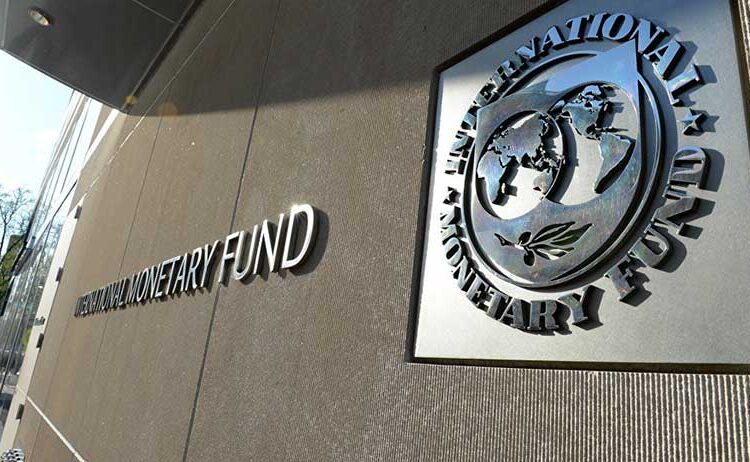Much research has been done on the development outcomes of countries that have borrowed from the International Monetary Fund (IMF). Whereas some argue for the benefit that governments derive from access to low interest loans to boost their fiscal positions, the trade-off on the society in the short to medium term have been posited by many as too severe to endure.
Administrations overtime have accessed loans from the IMF to help with balance of payments support following various crises caused primarily by exogenous shocks. One administration of recent memory became renowned for its insistence on self-governance and was able to demonstrate an ability to manage its own economic affairs. This resulted in the expulsion of IMF personnel from the precincts of Barbados.
From 2018, Barbados opted to borrow from the Fund in circumstances that were posited as the ‘last resort’. The loan programmes dubbed the Extended Fund Facility (EFF), and the Resilience and Sustainability Facility (RSF) arrangement were described as ‘homegrown’ and from all reports, have contributed to a significant improvement in Barbados’ fiscal position. The country was able to reduce its public debt and increase its international reserves. The primary fiscal balance recorded a surplus of 2.5 per cent of GDP in FY2022/23, following a deficit in previous years. The budget for FY2023/24 targeted a primary surplus of 3.5 per cent of GDP, in line with programme targets.
Based on the Central Bank Governor’s reports, the economy recovered strongly, driven by a rebound in tourism and related activities. The country has experienced eleven consecutive quarters of growth, and international reserves are at a historic high.
The reality on the ground for households and businesses alike paints a different picture. While a very small percentage of the population appears to be enjoying the benefits of economic growth, austerity is the lived experience of the majority. Young people are unable to access jobs based on their qualifications, many are opting to emigrate or accept low paying jobs where available. Startups and early growth businesses are confronted with a labyrinth when seeking to navigate the policy and programmes space for doing business; and households continue to struggle in maintaining acceptable living standards. The growth is not trickling down to the average citizen.
Research shows that the effects of IMF loans are a complex issue with varying results depending on the country and economic situation, however few countries overtime have reported any success after entering these loan agreements. The result too often is the increase in the country’s debt burden and a lack of investment in growth-promoting areas in the long run.
IMF loans can provide much-needed financial resources during economic crises. They can also push for reforms that improve a country’s fiscal health, such as reducing government spending or improving tax collection. However, the downside impact is often too severe. Austerity measures, which involve cutting spending on social programmes, is a price too high to pay. Additionally, these measures stifle economic growth in the short – medium term.
While the IMF does not explicitly mandate austerity, it often features certain conditionalities that portend austerity on the population. Since the devil is in the details, countries would be wise to pay attention to the fine print evidenced in Barbados’ situation of having to pay huge surcharges on top of regular interest payments and other fees due to its high level of IMF debt.
Two known types of conditions are:
• Prior Actions: Steps a country takes upfront, like tax reforms or clearing existing debts, to establish a solid foundation for the loan programme’s success.
• Quantitative Performance Criteria (QPCs): Measurable targets related to economic health, often involving limits on government spending or borrowing. These aim to control deficits and stabilise the economy.
Critics argue that austerity measures, often linked to QPCs, can have negative social consequences, including reduced social spending – cuts in government spending can negatively impact social programmes like healthcare and education, disproportionately affecting vulnerable populations who rely on them; and stifled growth – while intended to improve fiscal health, austerity hinders economic growth in the short term. Reduced government spending decreases demand for goods and services, slowing economic activity.
This latter point is germane to the state of many small firms that ordinarily depend on government procurement to help build capacity and to grow their operations. At present too many small businesses in construction, services and manufacturing are not benefiting from government procurement in circumstances where there is increased demand. It is either too few are benefiting from this procurement regime or there is a reduction in overall spending.
Little success can be cited from Caribbean countries that entered into arrangements with the Fund. These countries often have high levels of poverty and inequality. Cuts to social programmes disproportionately impact their populations, thus worsening the situation.
Proponents of austerity argue that by reducing government debt, it frees up resources for long-term economic growth, which could eventually benefit the entire society. However, research has shown that austerity actually hinders growth in the short term. There is little evidence of direct social benefits from the measures themselves; they often worsen social problems, particularly for the most vulnerable.
While researchers continue to assess the impact of the policy prescriptions of these Bretton Wood Institutions, small and vulnerable countries are feeling the brunt of austerity with the potential to retard social gains. The proverbial question must be asked of our governors, is it worth it in the long run?
The Small Business Association of Barbados (www.sba.bb) is the non-profit representative body for micro, small and medium enterprises (MSMEs).




